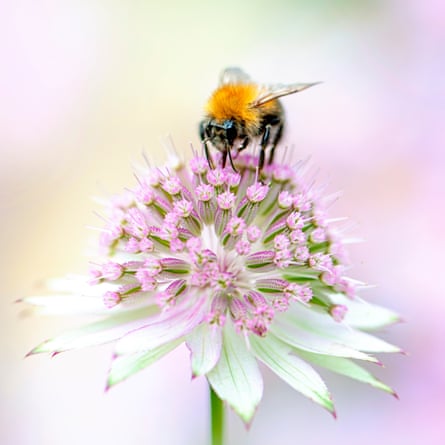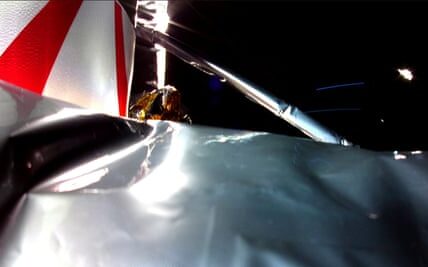Beekeepers in the UK are urging for legislation to be implemented that would require the source of honey to be traced from the beehive to the kitchen table.
British beekeepers support the suggested regulations aimed at preventing fraud in the supply chain. This will enable the tracking of a jar of honey’s 5,000-mile journey, from the beehive to the store shelf.
The European parliament has reached a consensus on implementing new labeling regulations and creating a traceability system for honey, tracking its journey from production to consumption. These proposed rules are part of a larger revision of the “breakfast directives”, which includes the honey directive.
Honey producers and sellers in the UK are advocating for the implementation of regulations in Britain. Honey is a frequently targeted food for fraudulent activity, as evidenced by a European Commission study conducted in March which revealed that 46% of tested products were suspected of being adulterated.
Lynne Ingram, who is a master beekeeper at Wesley Cottage Bees located near Bridgwater in Somerset, as well as the chair of the Honey Authenticity Network UK, has expressed her support for the changes made to the EU honey directive. These changes are seen as a positive move towards preventing the sale of contaminated honey. They are expected to provide consumers with greater reassurance regarding the purity and genuineness of the honey they purchase.
As per current regulations in the EU and UK, there is no obligation to specify the countries of origin for honey that has been mixed from multiple countries. However, under the proposed new EU guidelines, the country of origin must be clearly stated on the label. Furthermore, new studies are being conducted to find digital methods to trace the journey of honey throughout the supply chain.
The government is under pressure to guarantee that honey producers disclose the same information to British consumers. The government has previously stated that requiring country of origin labels for honey would be excessively demanding and raise production costs.

Iain Millar, one of the creators of the Scottish Bee Company, expressed his wish for the UK to adopt similar measures. Otherwise, consumers in the UK will receive significantly less information about their food compared to those in Europe. The labeling of country of origin is essential in understanding where honey comes from.
China is the leading producer of honey, and the UK is their top buyer. In 2022, China exported over 156,000 tons of honey, while the UK imported more than 34,000 tons. The global honey supply chain is vulnerable to fraudulent activity, as some may mix cheaper sugar syrup into the product. In China, there have been reports of industrial facilities advertising fructose syrup to be mixed with honey, as it can supposedly pass regulatory tests undetected.
German laboratories have conducted tests on honey sold in UK supermarkets in the past few years. These tests were commissioned by private parties and have indicated the possibility of tampering. However, importers and supermarkets have dismissed the results as unreliable. The Food Standards Agency states that further efforts are needed to develop dependable methods for detecting adulterated honey.
The European Commission’s testing of imported honey last year revealed that the majority of suspicious shipments came from China. Out of 89 consignments, 66 were flagged as suspicious. While all 10 samples from the UK were also suspected of being adulterated, it is possible that the honey originated from other countries and was then exported by the UK.
Some beekeepers have concerns about Chinese honey because it is often collected from hives before it has fully matured and then artificially dried to lower the moisture content. According to the law, honey should be allowed to fully mature in the hive before being harvested.
Professor Norberto Garcia, the head of the beekeeping economy committee at Apimondia, the global organization for beekeeping associations, stated that creating unripe honey is an unjust method of production that accelerates the maturation process and harms traditional, honest production methods.
“He stated that this has negative effects on honest beekeepers and leads to misleading customers who do not receive the product they paid for. He also mentioned that Apimondia supports the revision of the honey directive.”
A representative from Defra stated that they are aware of the recent EU suggestions regarding honey. They acknowledge that there is a tentative agreement on the proposals, but they have not been officially adopted yet.
“We are examining their technical specifications and collaborating with UK producers, businesses, and stakeholders to support the export of British goods and minimize any potential consequences. Our decision regarding our own policy will prioritize upholding our current rigorous food standards, safeguarding consumers, and promoting both businesses and consumer options at various price levels.”
The British Honey Importers and Packers Association (BHIPA) has a longstanding partnership with UK regulators to ensure compliance with laws and regulations for honey sold in the UK. They are committed to maintaining transparency and actively working with authorities. BHIPA also advocates for measures that increase consumer confidence and transparency in the origin of honey. Currently, single source honeys in the UK already declare their country of origin.
“Careful consideration must be given to any future decisions regarding the various methods of honey production worldwide, in order to prevent discrimination against certain types of honey solely based on their country of origin.”
Source: theguardian.com



